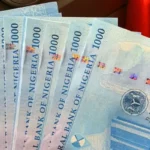The Central Bank of Nigeria is contemplating significant regulatory changes for Bureau De Change operators, as outlined in its revised guidelines.
The proposed measures include prohibiting BDCs from engaging in street trading, limiting cash payments for FX sales to a maximum of $500, and enhancing transparency by requiring sellers of forex above $10,000 to declare the source of funds.
The CBN’s proposed permissible activities for BDCs include acquiring forex from approved sources, selling FX in compliance with guidelines, and serving as cashout points for International Money Transfer Operators.
However, the apex bank explicitly restricts BDCs from street trading, account maintenance, accepting deposits and granting loans, facilitating international outward transfers, dealing in precious stones and metals, and establishing subsidiaries.
Under the proposed regulations, payments to customers for cash purchases of foreign currency exceeding $500 will be made through a transfer to the customer’s Naira bank account. For non-resident customers, BDCs will issue a prepaid NGN card, subject to relevant credit and cumulative limits aligned with Know Your Customer requirements.
The CBN aims to enhance Anti-Money Laundering, Counter Financing of Terrorism, and Combating Proliferation Financing compliance. The proposed measures reflect the CBN’s efforts to curtail speculation and stabilize the naira’s value.
The regulatory changes seek to sanitize BDC operations, curb their proliferation, and empower the CBN to oversee their activities. It is crucial to note that these regulations are proposals subject to review over time.
In recent weeks, security agencies like the EFCC and DSS have cracked down on street traders of foreign currencies to formalize the industry, and there have been reports of restrictions on Nigerian traders accessing the Binance forex trading platform, signaling a broader regulatory scrutiny.









